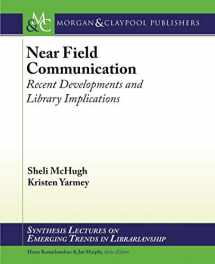
Empowering Professional Teaching in Engineering: Sustaining the Scholarship of Teaching (Synthesis Lectures on Engineering)
ISBN-13:
9781681732954
ISBN-10:
1681732955
Author:
John Heywood
Publication date:
2018
Publisher:
Morgan & Claypool Publishers
Format:
Hardcover
246 pages
Category:
Engineering
,
Schools & Teaching
FREE US shipping
Book details
ISBN-13:
9781681732954
ISBN-10:
1681732955
Author:
John Heywood
Publication date:
2018
Publisher:
Morgan & Claypool Publishers
Format:
Hardcover
246 pages
Category:
Engineering
,
Schools & Teaching
Summary
Empowering Professional Teaching in Engineering: Sustaining the Scholarship of Teaching (Synthesis Lectures on Engineering) (ISBN-13: 9781681732954 and ISBN-10: 1681732955), written by authors
John Heywood, was published by Morgan & Claypool Publishers in 2018.
With an overall rating of 3.6 stars, it's a notable title among other
Engineering
(Schools & Teaching) books. You can easily purchase or rent Empowering Professional Teaching in Engineering: Sustaining the Scholarship of Teaching (Synthesis Lectures on Engineering) (Hardcover) from BooksRun,
along with many other new and used
Engineering
books
and textbooks.
And, if you're looking to sell your copy, our current buyback offer is $0.45.
Description
Each one of us has views about education, how discipline should function, how individuals learn, how they should be motivated, what intelligence is, and the structures (content and subjects) of the curriculum. Perhaps the most important beliefs that (beginning) teachers bring with them are their notions about what constitutes "good teaching". The scholarship of teaching requires that (beginning) teachers should examine (evaluate) these views in the light of knowledge currently available about the curriculum and instruction, and decide their future actions on the basis of that analysis. Such evaluations are best undertaken when classrooms are treated as laboratories of inquiry (research) where teachers establish what works best for them. Two instructor centred and two learner centred philosophies of knowledge, curriculum and instruction are used to discern the fundamental (basic) questions that engineering educators should answer in respect of their own beliefs and practice. They point to a series of classroom activities that will enable them to challenge their own beliefs, and at the same time affirm, develop, or change their philosophies of knowledge, curriculum and instruction.


We would LOVE it if you could help us and other readers by reviewing the book
Book review

Congratulations! We have received your book review.
{user}
{createdAt}
by {truncated_author}


